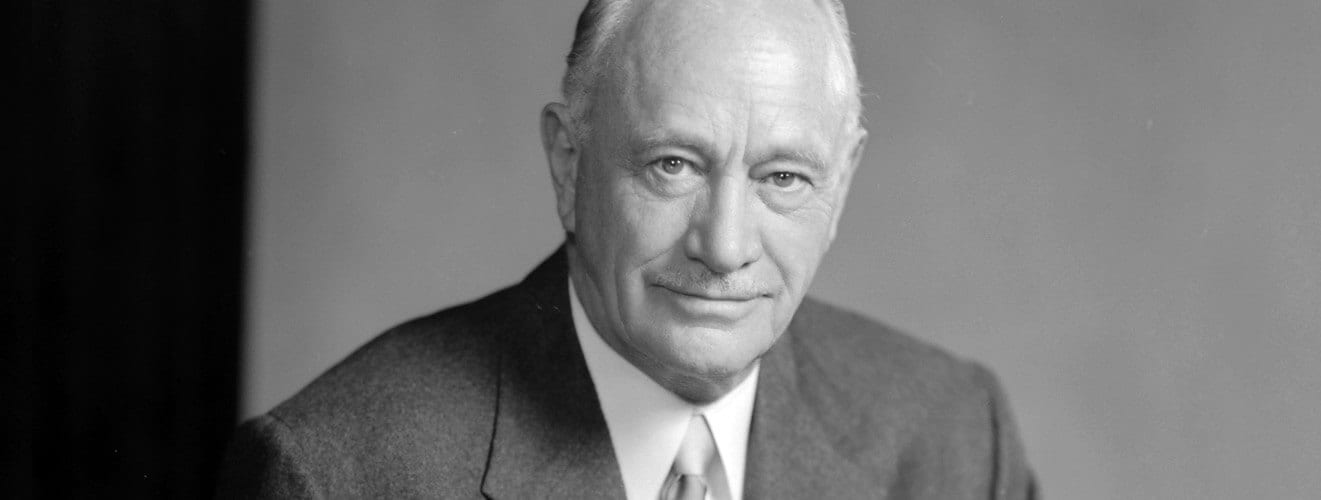


Immunize Your Portfolio… Part 2
September 20, 2019


Apple: The Magic Continues
December 12, 2019The term “Obliquity” was first coined by Sir James Black, a British chemist, who was also a Nobel Prize winner,
and whose research led to billions of extra profits for ICI.
Black realised that goals are often best achieved without intending them.
John Kay, a British economist, takes this principle further in his fantastic book : “Obliquity: Why Our Goals Are Best Achieved Indirectly”.
He argues that we are kidding ourselves if we think that our deft planning and control will lead to our intended outcomes. The world is too complex for that. Given that rational control is hubris, is it not better to have qualitative rather than quantitative goals.
High – level objectives – living a fulfilling life, creating a successful business, producing a distinguished work of art, are almost always too unprecise for us to have any clear idea how to achieve them. That doesn’t imply that these goals lack meaning or the capacity for realisation. We understand their meaning and realise them by translating them into intermediate goals and actions; we interpret and reinterpret them as we gain knowledge about the environment in which we operate. That is why successful approaches are oblique rather than direct.
“Happiness is not achieved through the pursuit of happiness. The most profitable businesses are not the most profit-orientated. The wealthiest people are not those most assertive in the pursuit of wealth. The greatest paintings are not the most accurate representations of their subjects, the forests most resistant to fires are not the ones whose foresters are most successful in extinguishing fires. Soviet planners managed the economy far less successfully than the adaptive, disorganised processes in market economies”.
John Kay explains that during Bill Allen’s time as head of Boeing from 1945 to 1968 it developed the 737, the most successful airliner in history. When it began development of the 747, which would define commercial aviation for decades, a non – executive director questioned the planes profitability. He was given the cold shoulder, because management sided with the engineers and not the accountants.
Boeing created the most commercially successful aircraft company, not through the love of profit but through the love of planes. The oblique approach to profitability delivered spectacular results.
Boeing lost its way when new CEO Phil Condit emphasised cost reduction and shareholder value. And we all know about the latest disaster – the crashes of the Boeing 737 Max – 189 dead on Lion Air Flight 610 and 157 dead on Ethiopian Airlines Flight 302. To this very day these planes are still grounded and the share price has suffered a spectacular collapse.
Johnson & Johnson is another example. Johnson & Johnson’s mission, written by Robert Johnson himself in 1943 reads as follows : “We believe our first responsibility is to the doctors, nurses and patients, to mothers and fathers and all others who use our products and services” Only in the last line of the mission statement do we find a reference to profits : “When we operate according to these principles, the stockholders should realise a fair return”.
As Sir James Black observed, it’s only in pursuing higher – level objectives that you create an organisation that is motivated to outperform. Profit can only come as a result of the greater meaning and value that you provide the world and the people that work for you.
I think the greatest example of Obliquity is that of King Solomon. God asked Solomon what he wanted from him and Solomon asked for wisdom so that he could best serve his people. Pleased, God personally answered Solomon’s prayer, promising him great wisdom and wealth because he did not ask for self-serving rewards like long life or the death of his enemies.
I believe the principle of Obliquity is most useful in life and in investing.
EXTRAORDINARY PROFITS FROM ORDINARY SHARES * WINNING STOCK MARKET STRATEGIES
If you are not happy with your portfolio performance or would like a second opinion,
please do not hesitate to contact Fenestra for a free review of your portfolio.


